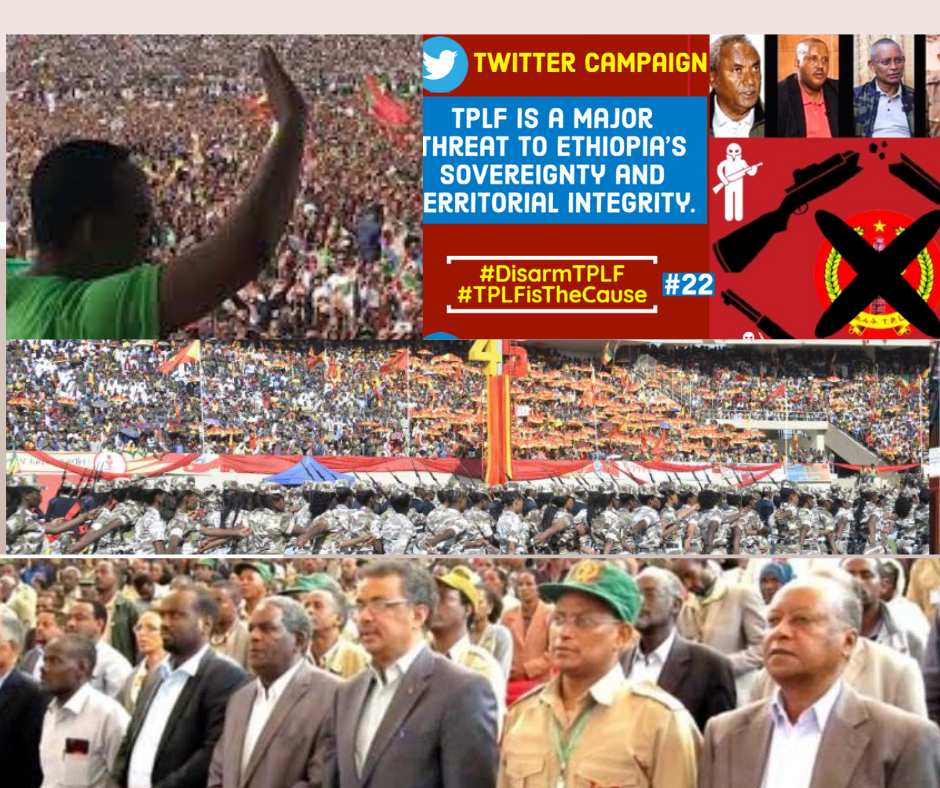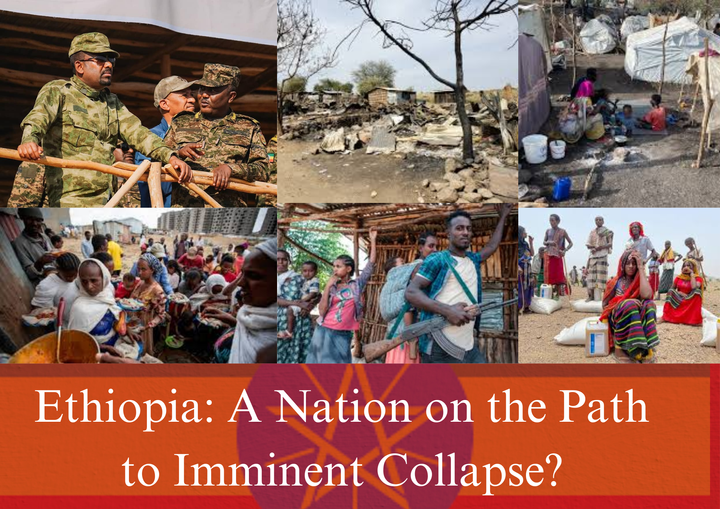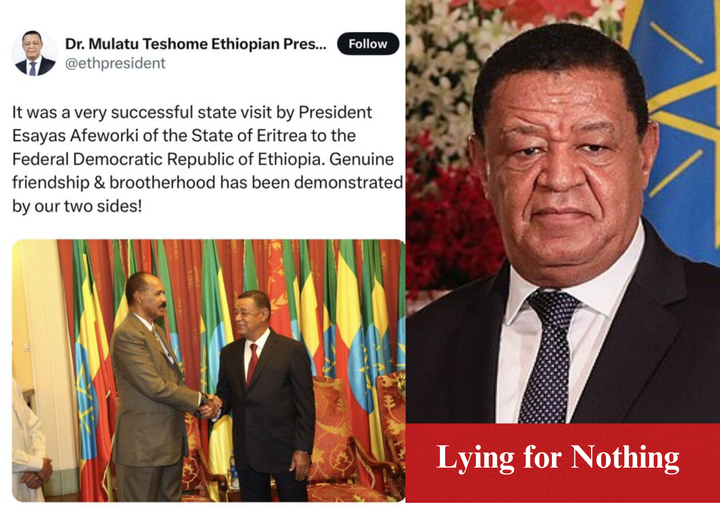Ethiopia's Forgotten Triumph: Overcoming Adversities and Paving a Path of Progress
This unbiased report unveils Ethiopia's path through trials & victories. TPLF's actions threatened the nation, but Ethiopia stood firm. The journey continues toward a brighter future.

Amanuel Biedemariam
Introduction: In 2016, Ethiopia experienced a pivotal moment when mass protests erupted, driven by longstanding grievances from the Oromo ethnic group. These protests marked a turning point in the country's political landscape, calling for reforms, human rights protection, and an end to discrimination. The ruling Ethiopian People's Revolutionary Democratic Front (EPRDF), dominated by the Tigray People's Liberation Front (TPLF), faced increasing dissent and divisions. The Oromo protesters' victory led to the appointment of Abiy Ahmed as Prime Minister in 2018, signaling a new era in Ethiopian politics. Since then, Ethiopia has made some remarkable moves making significant strides in reshaping its future.
What Ethiopia Achieved
- In 2016, Ethiopia experienced a significant shift in its political landscape when members of the Oromo ethnic group organized mass protests. The protests resulted from longstanding grievances related to political representation, economic marginalization, and human rights issues. As the largest ethnic group in Ethiopia, the Oromo had faced historical injustices and felt left out of meaningful participation in the country's governance. The Oromo people now hold a prominent position of influence in Ethiopia.
- The ruling party at the time was the Ethiopian People's Revolutionary Democratic Front (EPRDF), which was dominated by the Tigray People's Liberation Front (TPLF). The EPRDF had been in power since the overthrow of the military regime in 1991, and its rule had been characterized by a centralized and authoritarian system, with the TPLF playing a prominent role in decision-making. It was overthrown and ended up recoiling and running to Tigray. This was a significant victory that changed the trajectory of the Nation:
- The Oromo Protests for political reforms, human rights, and an end to discrimination spread across Ethiopia met with excessive force from security forces. The government declared a state of emergency but could not quell the unrest. The ruling coalition faced growing dissent and divisions. Prime Minister Hailemariam Desalegn resigned in recognition of the government's inability to address grievances.
- The Oromo protesters emerged victorious, leading to the appointment of Abiy Ahmed as Ethiopia's Prime Minister. Ahmed, a member of the Oromo ethnic group and the Oromo Democratic Party, made history as the first Oromo leader to hold this position in Ethiopia.
Abiy Ahmed in Post TPLF Ethiopia
Abiy Ahmed's rise to power marked a new era in Ethiopian politics. He pursued a reformist agenda, released political prisoners, lifted media restrictions, initiated talks with opposition groups, and made significant moves that helped save Ethiopia.
- In 2018 Abiy Ahmed pursued a policy of reconciliation and peace with Eritrea, culminating in a historic meeting with President Isaias Afwerki. They signed a peace agreement, reopened borders, and exchanged ambassadors, restoring diplomatic relations. Ahmed's approach earned him international recognition, but ongoing commitment and support are required to sustain peace.
- After two decades of conflict, Abiy Ahmed's efforts to pursue peace and reconciliation ended the war between Eritrea and Ethiopia. This led to the lifting of international sanctions on Eritrea.
- The peace between Eritrea and Ethiopia has transformed their relationship from enemies to friends, resulting in significant cooperation and joint initiatives. The relationship between these two countries is having a substantial impact on the trajectories of the region. The region has transformed due to the relationship between the two nations.
- In 2020, Ethiopia and Eritrea collaborated militarily against the TPLF during the Tigray War. This partnership was unprecedented and significantly impacted the conflict's outcome. The fall of the Tigrayan capital, Mekelle, marked a significant setback for the TPLF.
- After the TPLF attack, Ethiopian forces sought refuge in Eritrea, marking a notable shift in their historical enmity. Eritrea's decision to provide support demonstrated a willingness to prioritize regional stability and recognize a mutual security threat. This act of military cooperation was unprecedented and signaled a break from traditional hostilities.
- Afar's courageous and persistent people waged a battle against the TPLF and emerged victorious. They regained control over the territories that the TPLF had seized and held. The United Afar community fought valiantly to protect their homeland and ultimately accomplished their goal.
- During the TPLF's rule, the people of Wolkait faced unimaginable atrocities, enduring genocide, and forced sterilization while their ancestral land was unjustly taken. However, with the TPLF's defeat, the people of Wolkait have triumphantly reclaimed their land. The power shift now favors the Amhara region, preventing the TPLF from regaining control of these territories. This achievement is a profound milestone in restoring justice and sovereignty to the people of Wolkait, and it stands as a significant accomplishment for the Amhara region.
- During the TPLF's offensive against the Ethiopian military, Sudan also engaged in hostilities, creating a significant problem for Ethiopia. The close affiliation between the TPLF and Sudan's ruling party further compounded Ethiopia's security and stability threat. Nevertheless, Ethiopia managed to overcome this challenge and address the problem effectively. The conflict has been resolved, and the shift in relations has reduced the threat, improving the region's stability.
- Despite facing opposition from Egypt, Sudan, and others, Ethiopia has completed three stages of filling the Grand Ethiopian Renaissance Dam (GERD). This significant milestone affirms its sovereignty over water resources and development initiatives. For centuries, Ethiopia and Egypt have been embroiled in disputes over the Nile River, a vital water source for both nations. The dam's construction was met with resistance from downstream countries, particularly Egypt, which feared potential impacts on its water supply. However, the GERD's successful filling has prompted Egypt to seek negotiations with Ethiopia, aiming to find a mutually beneficial solution for water management. This progress opens the door for potential cooperation between the two countries, offering hope for stability in the Horn of Africa, the Nile Basin, and the Red Sea region. Successfully managing water resources could foster economic growth, environmental sustainability, and peace in this strategically important part of the world.
- Despite challenging times, Ethiopia has shown remarkable resilience in rebuilding its military institution. The TPLF's actions aimed to establish Tigray's military supremacy over Ethiopia and involved deliberate killings and destruction. However, Ethiopia persevered through these difficult times and successfully reconstructed its military to protect national sovereignty and security.
To Summarize: The TPLF posed an unparalleled existential threat to Ethiopia, and its defeat without plunging the country into civil war is a moment of profound relief. Ethiopia's rich tapestry of religious, ethnic, and political diversity presents a source of strength and potential vulnerability. The prospect of a civil war in Ethiopia was deeply concerning, as it could have led to one of the most devastating humanitarian disasters in history.
The TPLF's longstanding grip on power and its policies of exclusion and dominance over other ethnic groups had sowed seeds of discontent and division. Complex, interwoven identities mark Ethiopia's history, and any internal conflict has the potential to ignite longstanding fissures, leading to catastrophic consequences for its people.
Ethiopia successfully navigated the difficult task of defeating the TPLF without plunging into a full-blown civil war. The country's collective strength and solidarity were crucial in maintaining peace. The government's commitment to peace in the transitional period decreased tensions.
These accomplishments are remarkable for a nation that once teetered on the brink of disintegration due to the consequences of the TPLF's actions. The TPLF's policies led to the diversion of Ethiopia's wealth, technology, manufacturing, transportation, communications, and military towards establishing an independent Tigray, eroding the country's development and unity. Ethiopia's stability hung in the balance, navigating challenges with the West, Egypt, and the TPLF since 2018. Yet, despite these daunting hurdles, Ethiopia has displayed remarkable resilience and made significant strides forward.
Author's Note: This report aims to provide an objective account of the events in Ethiopia. These were factual situations that the country experienced. The TPLF has tried to cover up its significant loss, and this continues. However, due to specific actions by the West, Ethiopia's response has hindered the winners from thoroughly enjoying their victory. Nonetheless, this report aims to shed light on the situation without bias.



Comments ()